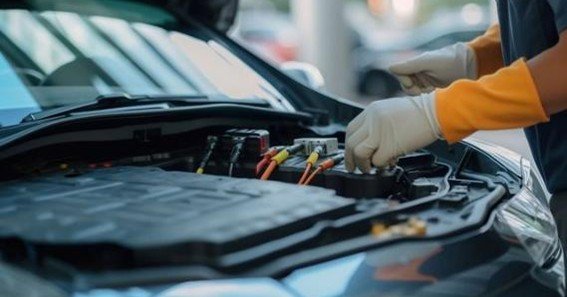If you’ve ever wondered, why is my car shaking when i accelerate, you’re not alone. Many drivers experience troubling vibrations when they press on the gas pedal, and these shakes can be a sign that something is wrong under the hood—or even with your tires and suspension. In this blog post, we explore the possible reasons behind this issue, discuss how to diagnose the problem, and provide practical tips and FAQs to help you address the vibration and keep your car running smoothly.
Common Causes of Car Shaking When Accelerating
When your car shakes during acceleration, several factors could be at play. Here are some of the most common causes:
1. Engine Issues
-
Misfire or Poor Combustion:
An engine misfire can cause uneven power delivery to the wheels, resulting in a shaking or vibrating sensation. This might be due to faulty spark plugs, bad ignition coils, or issues with fuel delivery. -
Engine Mounts:
Worn or damaged engine mounts can allow excessive engine movement during acceleration, which causes vibrations to be transmitted to the vehicle’s frame.
2. Tire and Wheel Problems
-
Unbalanced or Misaligned Wheels:
If the wheels are unbalanced or misaligned, they can create a wobble at higher speeds, particularly noticeable during acceleration. -
Uneven Tire Wear or Defects:
Tires that are worn unevenly, damaged, or have manufacturing defects may cause your car to shake. Regularly check tire pressure and condition to prevent these issues.
3. Suspension and Drivetrain Issues
-
Faulty Suspension Components:
Worn-out or damaged suspension parts (such as shock absorbers, struts, or bushings) may contribute to vibrations, especially when the car is under load during acceleration. -
Drivetrain Imbalances:
Problems with axles, driveshafts, or differential components can cause vibrations as the vehicle speeds up.
Diagnosing the Problem: Why Is My Car Shaking When I Accelerate?
To pinpoint the cause of the vibrations, consider these steps:
-
Visual Inspection:
Start by checking tires for uneven wear, ensuring proper tire pressure, and inspecting the overall condition of the wheels. Look under the car for any obvious signs of damage to suspension or drivetrain components. -
Listen and Feel:
Note when the shaking occurs. Does it happen only during acceleration, at certain speeds, or continuously? These clues help narrow down whether the problem is related to the engine, wheels, or suspension. -
Professional Diagnosis:
If a visual inspection doesn’t reveal the issue, it’s wise to have a certified mechanic perform a diagnostic test. They can check for engine misfires, inspect wheel balance, and evaluate the health of suspension parts.
Maintenance and Preventative Tips
-
Regular Engine Tune-Ups:
Keeping your engine in optimal condition with regular maintenance can prevent misfires and ensure smooth power delivery. -
Tire Rotations and Balancing:
Rotate and balance your tires periodically to avoid uneven wear and vibrations. -
Suspension Inspections:
Regularly inspect suspension components for wear and have them replaced as needed to maintain a smooth ride. -
Attention to Engine Mounts:
Replace worn engine mounts promptly, as they play a crucial role in dampening vibrations from the engine.
Frequently Asked Questions
-
What are the most common causes for my car shaking when I accelerate?
Common causes include engine misfires or poor combustion, unbalanced or misaligned wheels, uneven tire wear, faulty engine mounts, and worn suspension or drivetrain components. -
How can I determine if the shaking is caused by tire issues?
Check your tires for uneven wear, low pressure, or damage. If the vibration is more pronounced at higher speeds, it could be related to wheel balance or alignment. A professional wheel alignment and balancing check can provide clarity. -
Can a shaking car during acceleration be dangerous?
Yes, it can be. Persistent shaking may indicate underlying issues that could lead to more serious mechanical failures or compromised safety, so it’s important to diagnose and address the problem promptly. -
Is it possible to fix the shaking myself, or should I see a professional mechanic?
While you can perform basic inspections, such as checking tire pressure and visual inspections of your tires and engine mounts, significant issues (like engine misfires or suspension problems) should be handled by a professional mechanic for safety and proper repair. -
How often should I have my car inspected to prevent shaking?
Regular maintenance is key. It’s advisable to have your vehicle inspected at least once a year or according to the manufacturer’s service schedule. Additionally, if you notice any unusual vibrations when accelerating, have it checked immediately.










